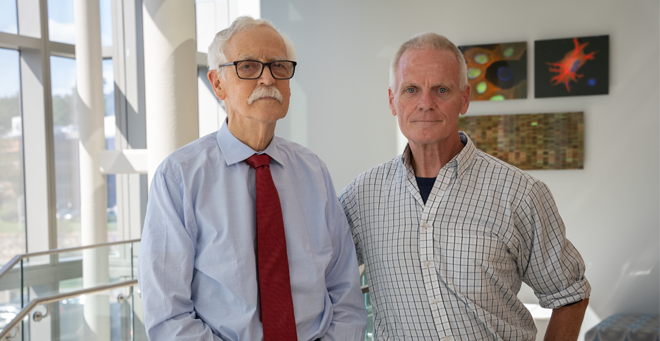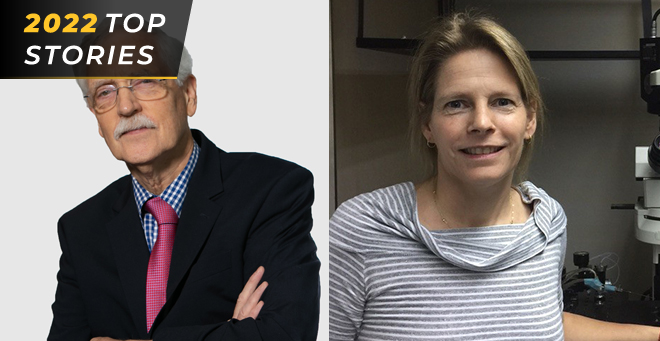
The Angel Fund for ALS Research continues to support UMass Chan Medical School researchers who are committed to advancing research into ALS, or amyotrophic lateral sclerosis, also known as Lou Gehrig’s disease.
At the Angel Fund Annual Gala and Silent Auction on Sept. 29 in Burlington, Massachusetts, the organization announced a donation of $711,000 to support the research of Robert H. Brown Jr., DPhil, MD, the Donna M. and Robert J. Manning Chair in Neuroscience and professor of neurology. Dr. Brown discovered the first gene associated with hereditary ALS and led the first clinical trial for ALS using gene therapy.
“All of us on the UMass Chan ALS research team are profoundly grateful to the Angel Fund for its generous support. Support from the Angel Fund has been enormously important in our efforts to develop innovative ALS therapies,” said Brown.
Angel Fund President Rich Kennedy and his family have been impacted by ALS. His father, Chris, and brothers, Jimmy and Jake, died from the disease. In 2016, at the age of 56, Kennedy was diagnosed with ALS.
“The Angel Fund for ALS Research is pleased and honored to support the work of Dr. Brown and the entire staff at UMass Chan,” said Kennedy. “The hard work undertaken by the researchers on a daily basis is making significant progress and gives us genuine hope that we’re moving closer to an effective treatment and ultimately a cure for ALS. The Angel Fund for ALS Research is proud to say that of funds expended, more than 90 percent is given to research.”
ALS is a progressive neurodegenerative disease that affects neurons in the brain and the spinal cord. People with ALS slowly lose the ability to initiate and control muscle movement, which often leads to total paralysis and death within two to five years of diagnosis. While 10 percent of ALS is familial in origin because of a genetic defect, the other 90 percent of ALS cases are considered sporadic, or without a family history.
In the past 15 years, The Angel Fund has provided more than $6 million in funding to UMass Chan ALS research.

